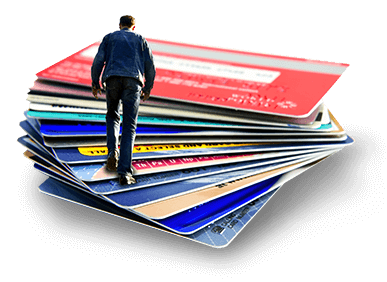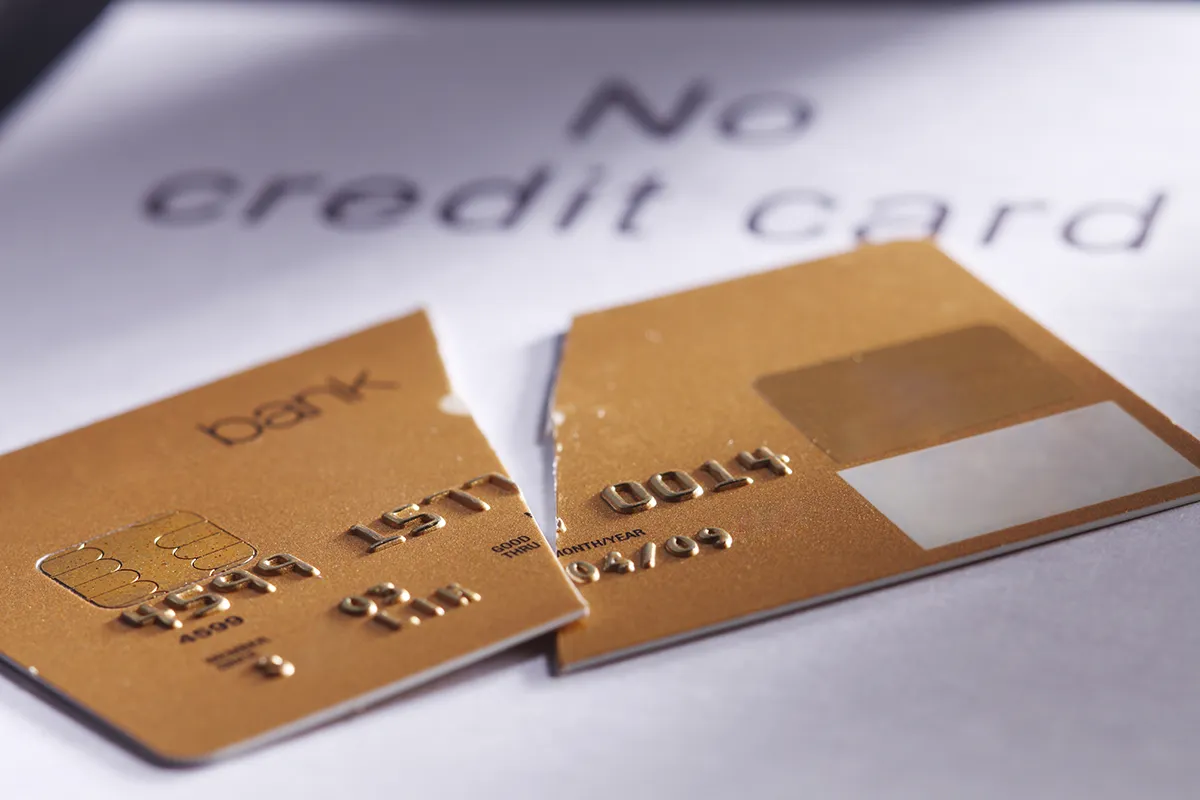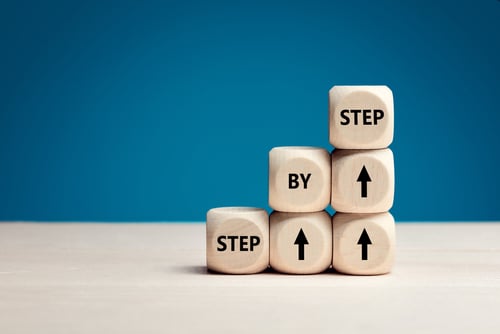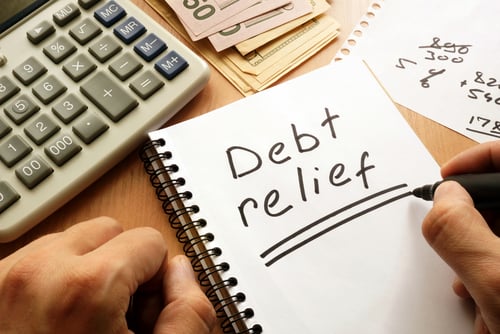Too much credit card debt
5 Warning Signs
Credit cards, when used responsibly, can be a very useful tool. For one thing, they can help build a healthy credit score and profile when paid off in a timely and consistent manner. In fact, there may be no better way to start off a credit history than by getting approved for an initial credit card and using it for small, manageable purchases that are then paid off in full at the end of every billing cycle. Not only does this help build a credible repayment history, but it also allows the benefit of monthly budgetary flexibility at little to no expense to the debtor when charges are paid in full, or at least for amounts greater than the monthly minimum.

Problems begin to arise, however, when a borrower becomes too cavalier with credit lines and begins to use credit cards for extravagances and other expenditures that stretch the individual to live beyond his or her means. Because a borrower is immunized from feeling the immediate (non-cash) expense and any pressure of immediately paying back accumulating debt, it can become all too easy to lose track of credit card spending while it’s mounting. After all, it’s fun to spend money. Nonetheless, over time, excessive credit card spending can evolve into a very real and insidious problem that leads to overwhelming debt that can significantly impact a borrower’s quality of life. It usually won’t happen right away – but make no mistake – it can and does happen. If you enjoy using credit cards, pay close attention. Here are the top five warning signs that you may be carrying too much credit card debt and could be heading for a debt problem.
1. Paying Minimum Monthly Payments Only
Paying less than the full balance on your credit card(s) is one thing, but resorting to paying only the minimums every month is another thing altogether. For one, it’s a sign that you just don’t have much disposable cash and have come to rely on your cards a bit too much. But furthermore, it’s an indication that you’ve developed the habit of “paying” more for your debt than is desirable. It’s no secret that interest rates on unsecured credit card debt typically range from 12-20% – or higher – so that high interest expense is burning a hole in your already not-so-deep pockets. On the one hand, it’s good that you’re still making payments and are not delinquent, but if you’re not paying more than the minimum each month, it’s costing you money and time. Not to mention that a higher credit utilization ratio (percentage of available credit attributed to borrowings) is also weighing down your credit score.
ABC
2. Robbing Peter to Pay Paul (or something like that)
If you’re using one credit card to pay off another card, then that’s another warning sign. Now, granted, we’re not talking about those instances when you get a 0% promotional offer to pay off higher interest rate cards. That can be a readily accessible and useful form of debt consolidation. However, if you find yourself using cards with mid-level interest rate promos as a means to pay off other cards and manage cash flow on a monthly basis, or are resorting to outside loans (such as home equity lines of credit) to pay off your credit cards, that’s a strong indication that you’ve already got too much credit card debt. And let’s not even talk about taking cash advances that often come with 20% interest rates and associated fees. Not a good sign that you’re managing credit cards responsibly.
3. You're Denied Additional Credit
If you apply for another card or an extension to an existing credit line and are denied, it’s not a good sign. For one, it’s an indication that something isn’t quite right in your credit profile – it very well could mean that you’ve got too many cards already, your debt to income level might be too high, your credit utilization ratio is too high, or maybe there’s something amiss in your credit report that you may not yet know about. Have a look at your credit report (visit annualcreditreport.com to order free credit reports from TransUnion, Experian or Equifax) and make certain that there aren’t any discrepancies worth disputing. Short of spotting any discrepancies, being denied or receiving fewer “pre-approved offers” than usual in the mail is a sign that potential lenders have cooled on you and that you already have more than enough credit card debt.


4. Your Cards Don't Work So Well Anymore
If you’re denied at the point of sale – as in the server comes back to the table and informs you that the card “didn’t go through,” that’s a glaring indication that you’re close to maxed out on a particular card and haven’t been paying off enough of your credit card debt. Similarly, if when you’re checking into a hotel or renting a car, and you can’t handle the “hold” on the card (something in the order of $100 or more), that’s also a sign that you’re carrying too much credit card debt. Formulate a monthly budget, take stock of your cash inflows and necessary outflows – rent, food, transportation, etc. – and start making room to pay off more of your credit card balances each month.
5. You Lack a Plan for Getting Out of Debt
Obviously, this isn’t much of a problem if you’re just getting started with credit cards. But, if you’re already carrying thousands of dollars of credit card debt and it’s mounting, you’ve got to have a plan. If you’re not thinking about how to get out from under a growing pile of debt, you’re already on the road to a debt problem. Know your balances, know your monthly payments, know your budget, and most of all – know what it will take to get you on the road to becoming debt-free. Attaining the peace of mind that comes with a debt-free lifestyle is worth the effort. If, despite your best efforts, you still require assistance pursuing credit card debt relief strategies such as a debt management plan, debt consolidation, or debt settlement, contact us here at United Settlement. Together, we’ll discuss the particulars of your specific financial situation and help you get on the road toward financial wellness.

Too Much Credit Card Debt
Debt Relief Reviews
Get Debt Relief
Speak with licensed debt specialists dedicated to guiding you toward financial stability every step of the way.

Ready To Get Started?
See if you qualify for debt relief. Get a Free savings estimate to see how quickly you can be debt free.
Embrace financial freedom with our tailored solutions, expert guidance, and unwavering commitment to your success.
Experienced Professionals
Our experienced team has helped thousands of clients successfully eliminate debt and regain financial freedom.
Customized Solutions
We know every financial situation is different, so we design personalized debt relief plans to fit your specific needs and goals.
High Success Rate
Our proven debt relief strategies deliver real results. With a strong track record of success, we help clients achieve lasting financial stability.
Confidential Consultation
Your privacy is our priority. All debt relief consultations are 100% confidential and handled with the highest level of discretion.
Explore other blogs











